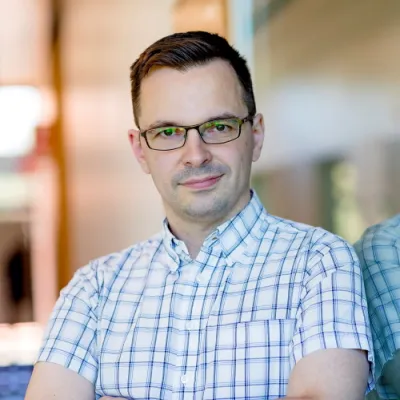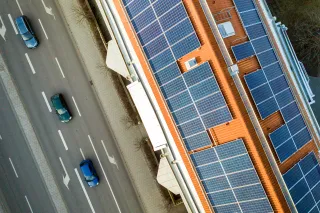Future-proofing the built environment within energy transition
As the energy transition progresses rapidly within our society, the built environment – including districts and buildings – plays a pivotal role in shaping the future energy system and reaching ambitious climate targets. This future system must be sustainable, reliable and cost-efficient.
The built environment can contribute to these goals through enhanced energy efficiency and flexibility. Simultaneously, innovative operational models like energy communities can engage individuals in the energy value chain. Watch this open webinar to learn more!
About the webinar
Currently, our society is strongly dependent on reliable energy supply. This dependency will only intensify as we continue to electrify crucial processes such as heating and mobility. At the same, the energy system remains vulnerable to different threats and events, realizing both as service interruptions and energy price fluctuations. Resilience and preparedness can and must be improved on all system levels. The built environment has the potential to systematically integrate resilience while ensuring economic viability. For example, value stacking — like offering backup power while actively participating in reserve markets — can be beneficial in this context.
This webinar will showcase visions and findings from VTT and the building industry including:
- An overview of bottlenecks related to the energy transition and their impact on the built environment
- Concepts of sector integration and flexibility services applied for the built environment
- Resilience solutions paired with business case analysis
- Insights from building industry
The webinar is aimed at people working on new solutions for the built environment, smart buildings, flexibility, and their integration with energy system and markets. It offers valuable information for decision-makers, developers, researchers, and more.

Speakers

Tuula has more than three decades of extensive experience in the energy sector. She has held various leadership and expert positions at VTT with the aim of supporting industry and society in the transition to carbon neutrality and accelerating sustainable growth. Tuula has broad knowledge of smart and flexible energy systems, new energy generation solutions, built environment, low carbon transport solutions and bioeconomy. She has been active throughout the whole innovation value chain: development, demonstration and commercialization of new technologies and solutions. Tuula has a strong background in both international and national cooperation. She is i.a. Member of the Executive Committee of EERA European Energy Research Alliance.

Kari has more than 20 years’ experience from smart energy system and energy transition research, complemented with practical experience from industry and utility sides. His research is focused on smart energy systems widely, sector integration, role of digitalization, virtual power plants, storage integration as well as several other system-level issues. In addition to technology, his interests are in business models and market interfaces. He is active in several international collaboration networks, such as CEM, EERA and IEA ISGAN ExCo. Recently, he was also a visiting scholar at UC Berkeley in United States.

Kirsi is heading the customer relations and partnerships at the VTT Research Area: Smart energy and built environment. She has experience from international business development, innovation commercialization and consumers perspective toward adapting novel solutions and business models. She has also researched energy policies and consumer adoption enablers and barriers related to the energy transition, solar PV adoption and electric mobility and sustainability transition in general.

Dr. Miimu Airaksinen works as Senior Vice President for development in SRV Group Plc. She is leading SRV's sustainability and lifecycle-wise construction strategy program. She is also currently member of EU Mission Board Assembly on Climate Neutral and Smart Cities. Before she joined SRV, she was the CEO and Managing Director at RIL Finnish Association of Civil Engineers and a Research Professor at VTT.

Jari Shemeikka is a Research Team Leader at VTT. Jari has more than 29 years of experience in the research area of energy use in buildings. He has been developing the national Nearly Zero Energy Building solutions, which have further been developed to the positive energy buildings and districts. His most recent research activities contain novel energy resilient buildings, which tackle the challenges related to power outages.

